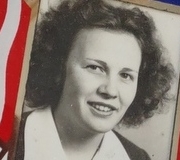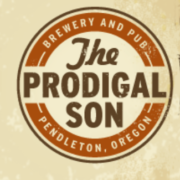Greater Love Hath No Woman
When Mary Karr published her darkly funny memoir, Liars’ Club, about her hard-drinking gun shooting parents, she was terrified about going out on book tour. People will think I’m a freak, she thought. But in reading after reading, people came up to her and said, “Your family is just like mine!” And so Karr adopted a new definition of dysfunctional family: Any family with more than one person in it.
Maybe you can relate. I know I can. As a young adult, every year about this time, I would trudge dutifully to the Hallmark store, in search of a Mother’s Day card. I would read them, and one by one, put them back. They were full of loving praise for Moms who provided after-school snacks, sound advice, and plenty of hugs.
I was looking for a card that said, “Reluctantly thinking of you.”
My mother suffered from a mental illness known as Borderline Personality Disorder, a disease that left my brother and I both physically and emotionally battered. She was desperately unhappy, manipulative, narcissistic, and angry.
But that is not my mother’s whole story. Though the tentacles of mental illness made everyday life difficult, she tenaciously hung onto God’s love and grace … through my father’s death when I was five, through years of hospitalizations and bad health, through financial difficulties. She kept taking us to church, she read her bible, she prayed. She also “knocked some sense” into one of us, or called us names, or threatened suicide. But her desire for God, and for His loving kindness were undeniably real, too.
In my childhood years, I could scarcely understand what WAS happening, and who my REAL mother was. Like a sick kid on a bad carnival ride, I just wanted off the tilt-awhirl. But as a friend of mine once said, you can choose your friends, but you’re stuck with your relatives.
Three years before my Mom died, when I was 47, I took her to Washington DC, a place her patriotic heart had always wanted to visit. At Arlington Cemetery, we visited President Kennedy’s grave, who was assassinated just one year after my father was killed by a drunk driver. As we stood on the Metro platform waiting for the train back to the city, I asked her what it was like for her on that December night. My dad had gone to church to package Christmas candy for the kids, and a half hour after he left, our pastor came to the door. Nora, he said, there’s been an accident, and there’s a car on fire, and we think it’s Bill’s because he never made it to church. My mother said she ran down the hall to their bedroom, and threw herself on the floor and cried, “Oh God, please don’t let it be Bill! Please don’t let it be Bill!”
It was the one and only time we ever talked about that night. I saw her in that moment not as a mother who withheld love and administered pain, but as my sister, a woman, in anguish. I also saw that in that first moment of terror, she cried out to God. I began to forgive her, to understand her, and to have compassion for her.
It has taken me many, many years to understand why I was born to my mother. I was still struggling to understand when I named Nora’s Table for her. I wanted something positive attached to her name, so that when people asked me again and again, “Are you Nora?” I would feel a sense of happiness and peace. And as that happened, it broke open my heart a little more, and more and more of the sadness of my childhood seeped out of me. I began to see how God loved me and my brother … and my mother … through, and in spite of, the unremitting experience of her mental illness.
First, He gave my brother and me to her so that we could show His love to her, and help her, who was our weakest sister. He gave us amazing recuperative powers, a deep well of love and compassion, and a great sense of humor. We were forged in fire, made strong and resilient.
And second, God helped me to see that my mother was the embodiment of our scripture today, “Greater love has no one than this, that she lay down her life for her friends.” My mother knew that she could not give us much. I began to see that on that train platform in Washington DC. She marshaled all that she could muster, from beneath the shroud of mental illness, and she gave ALL of that to us. She literally lay down her life for us. In proportion to what she had to give, it was enormous. It was all. And it was enough.
Mom died at Brookside Manor in July of 2006. In the last few weeks of her life, she stopped talking. But the day before she died, she said three words to me, and she said them over and over and over: “I love you, I love you, I love you.”
Delivered at Riverside Community Church, 2019



